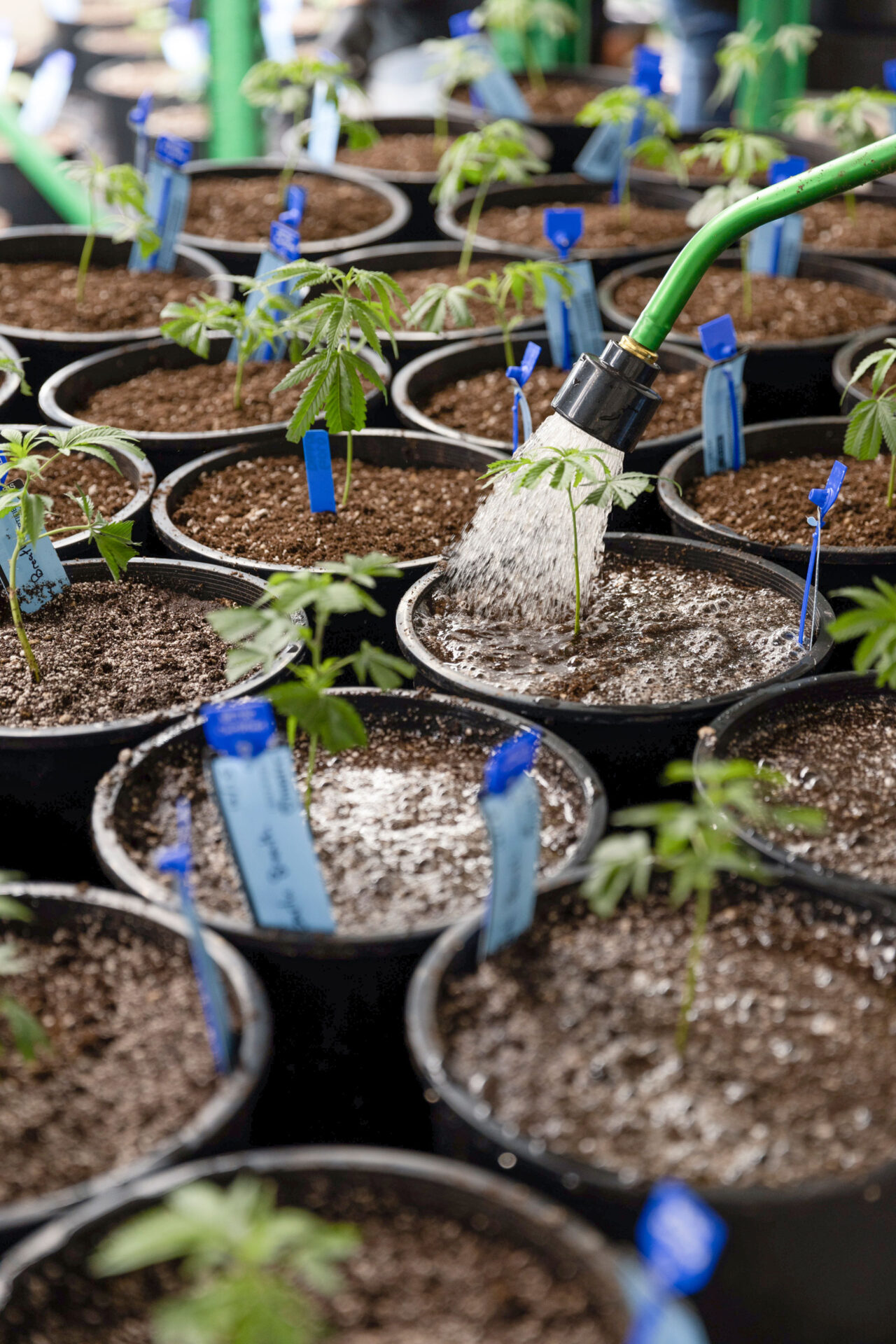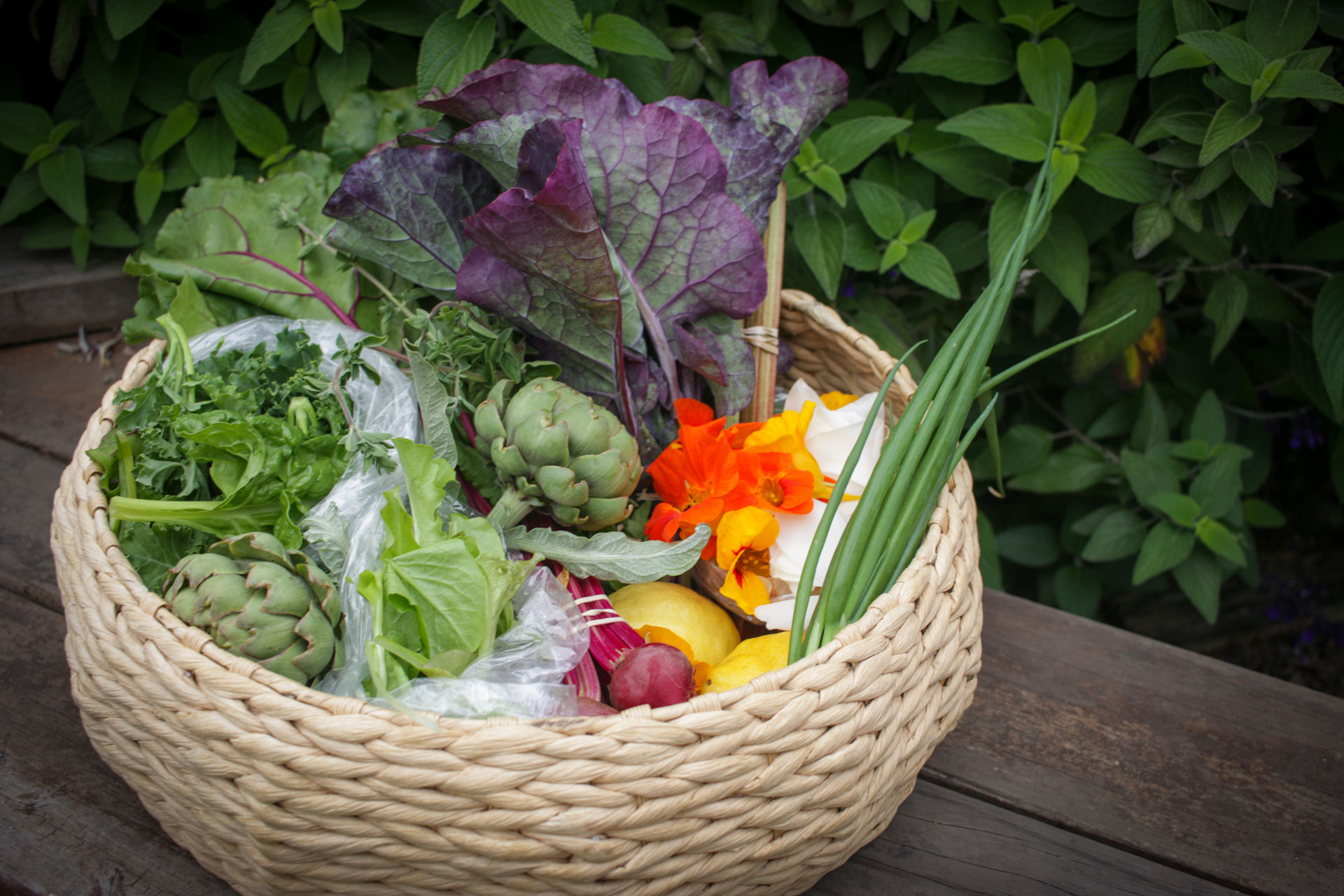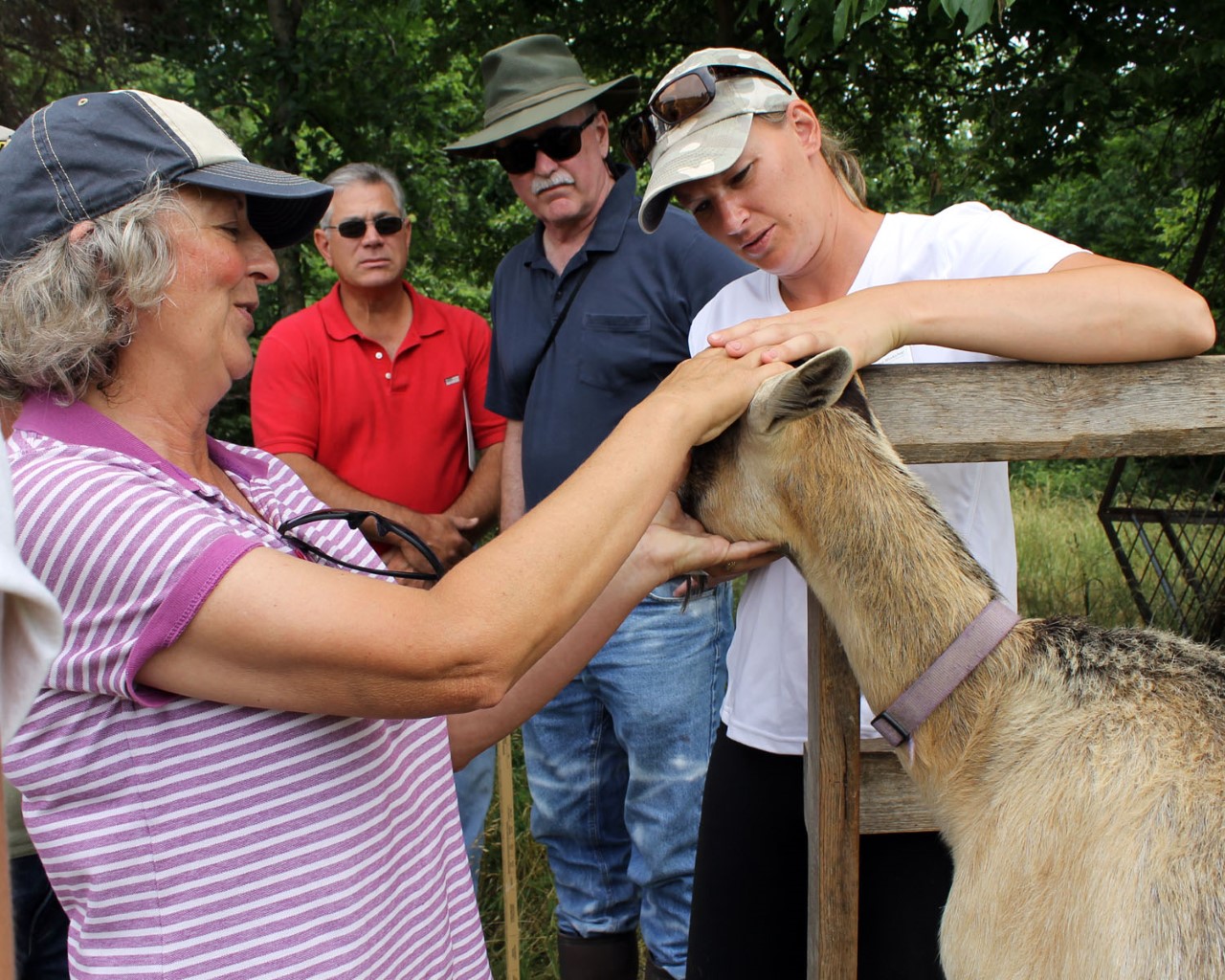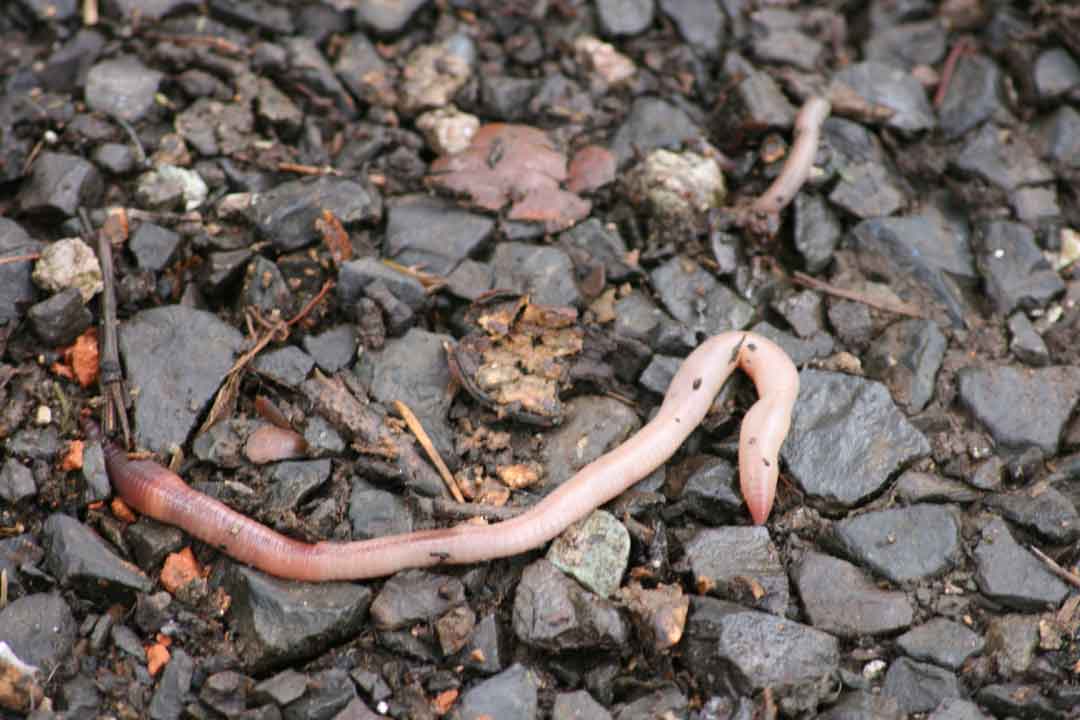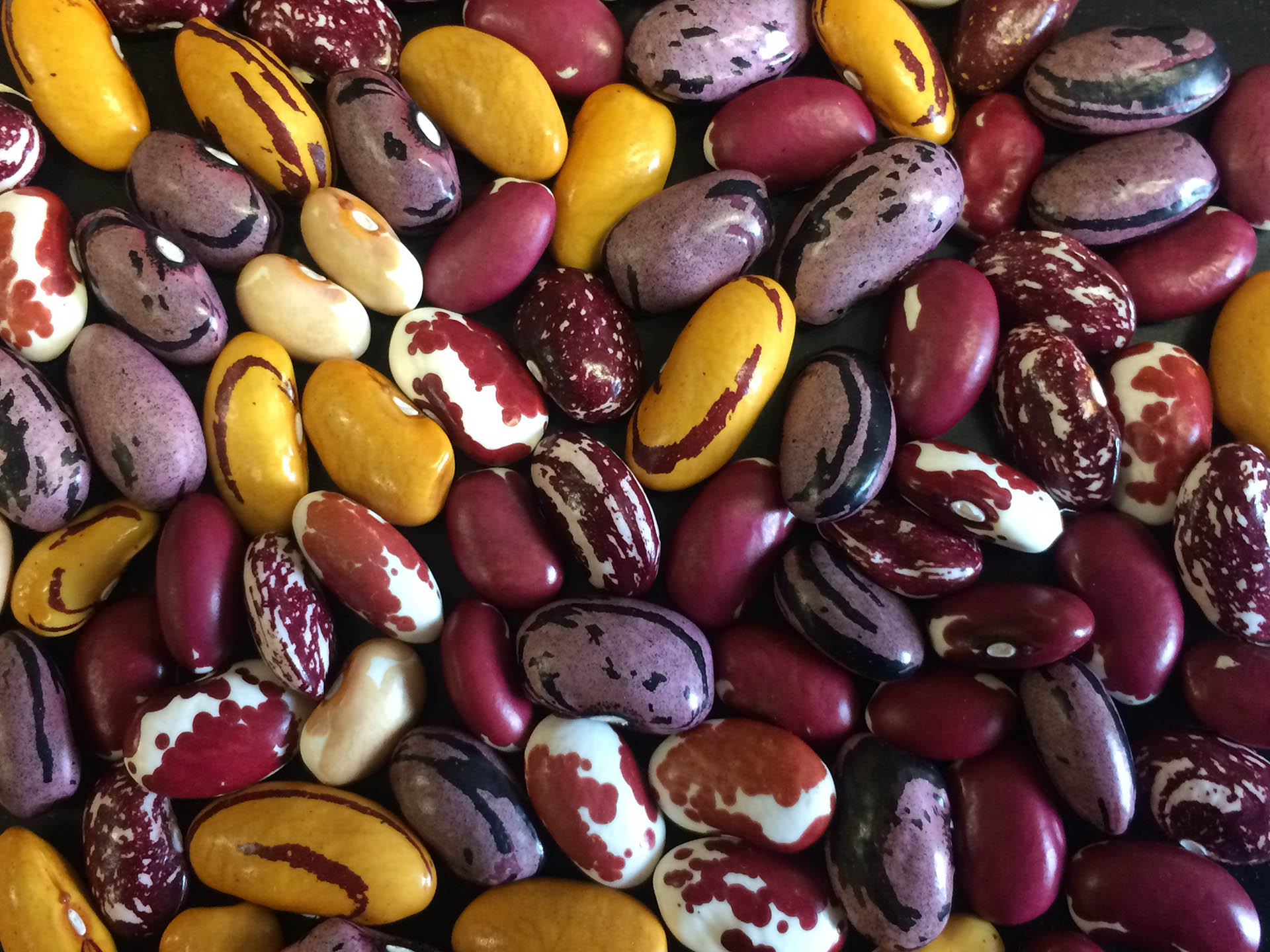
Graduate students at the University of California, Davis are making very rare commodity available to organic growers: high-yield, disease-resistant bean varieties that can thrive on organic farms.
A half-dozen new dry bean varieties that were bred at the University of California, Davis to be disease-resistant, hearty and high-yielding are now or soon to be available for commercial production. And, because they were developed through traditional breeding techniques, they are suitable for organic production.
“Most crops—about 95 percent—have been bred for conventional farming and can be difficult to grow in organic systems,” said Travis Parker, a doctoral student in plant biology who is leading the project. “These new bean varieties could make a big difference in performance and profitability of organic legumes like pinto, black and kidney beans, as well as heirloom-like varieties with high culinary quality.”
There are five new bean varieties being released now, and one that is going to get an additional year of testing. All have resistance to bean common mosaic virus and improved yields. They have been in field trials the past two years in growing regions throughout California should be well adapted to conditions across the Western U.S., Parker said.

leads a student-run project to breed beans for
organic production.
“Bean common mosaic virus slows down a plant’s growth rate in general and causes a lot of problems that growers sometimes attribute to other pressures, like insect pests,” Parker said. “And the virus is more prevalent than people may realize. Many growers have it and may not know it.”
In addition, many of the varieties have shorter growing seasons than currently available varieties, some as low as 85 days instead of the more typical 110.
Here are the new varieties and the yield increases the UC Davis team measured over currently available varieties:
- UC Sunrise, similar to Zuni Gold and Anasazi, 56% yield increase
- UC Southwest Red, similar to Anasazi, 87% yield increase
- UC Tiger’s Eye, similar to Tiger’s Eye, 55% yield increase
- UC Rio Zape, similar to Rio Zape, 16% yield increase
- UC Southwest Gold, similar to Zuni Gold, 47% yield increase
Parker’s team received a $25,000 grant from the Western Sustainable Agriculture Research and Education (SARE) program. Parker has been working with a team of student breeders under the guidance of Professor Paul Gepts, a bean geneticist with the UC Davis Department of Plant Sciences. The bean project is part of a larger plant-breeding effort to develop new varieties of tomatoes, peppers, beans and other vegetable crops that can flourish in both organic and conventional systems.
Varieties to Combat Virus and Weed Pressures
Legumes are nutritious and especially important to sustainable agriculture. They contain symbiotic bacteria in their roots that produce nitrogen compounds, which feed the crop and enrich the soil even after harvest.
“That’s why beans are so useful in rotation with other crops,” Parker said. “Plus, dry beans have a long shelf life so farmers can store them and sell them according to market conditions.”
But conventionally bred beans can present a challenge for organic farmers. With limited use of herbicides, organic farmers have trouble controlling the weeds that battle young crops for water, sun and food.
To address that, Parker and his team are breeding fast-growing plants that can outcompete weeds. The new varieties grow tall enough to shade out weeds without tipping over to make it easier for organic and conventional farmers to use tractors to mechanically control weeds.
Funded by a $1 million grant from the U.S. Department of Agriculture, the UC Davis Plant Breeding Center project is working with the Organic Seed Alliance and organic growers in California to set priorities and develop new crop varieties. Students are leading the project as part of the center’s innovative efforts to train a new generation of plant breeders.
“We want to give our plant-breeding students experience with real cultivar development that results in products that growers and seed producers want,” said Professor Charlie Brummer, director of the UC Davis Plant Breeding Center. “This project lets us put those pieces together in a very meaningful and exciting way.”
Sample seed for the five new varieties has been distributed at grower meetings. Commercial quantities are available through the UC Davis Foundation Seed Program.

